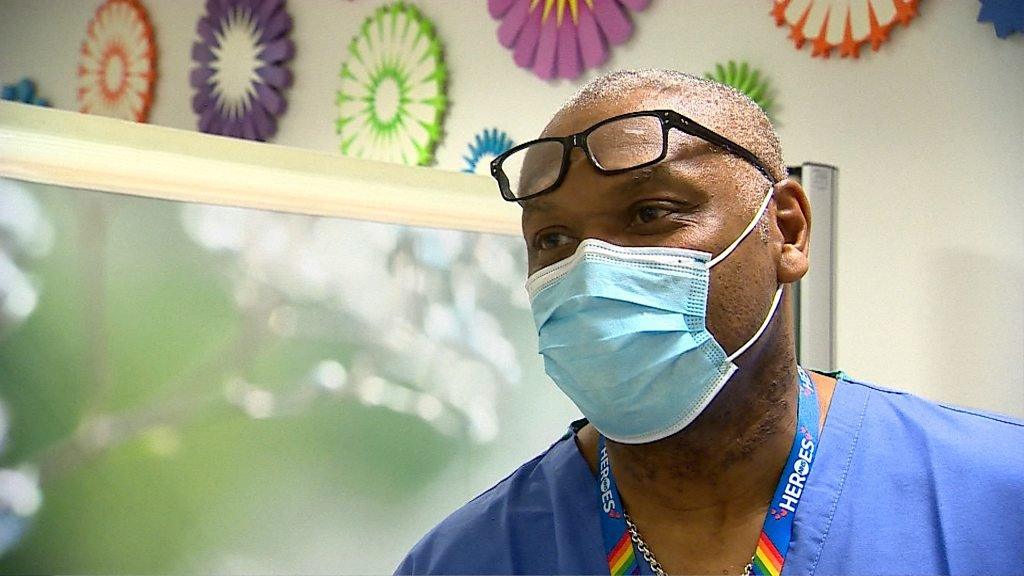Covid: Vaccine-hesitant patients in Leicester get GP phone calls
- Published
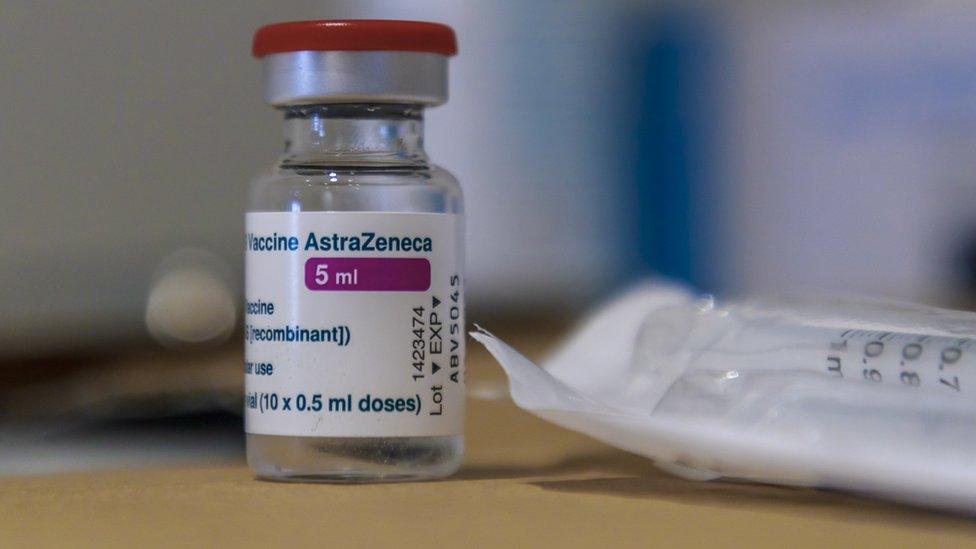
More than 20m people in the UK have received their first dose of a Covid vaccine
A pilot scheme in which GPs phoned patients who had declined or ignored Covid jab invitations has led to more than half agreeing to be vaccinated.
Health bosses in Leicester came up with the idea to improve uptake rates among high-risk communities.
Out of 200 vaccine-hesitant patients called by one practice, 125 decided to go ahead with the jab after discussing their concerns with a doctor.
One GP involved in the project said it was "clear" the approach worked.
Leicester City Clinical Commissioning Group (CCG) devised the approach after finding vaccine uptake was up to 40% lower among residents from deprived areas and BAME communities.
'Trust'
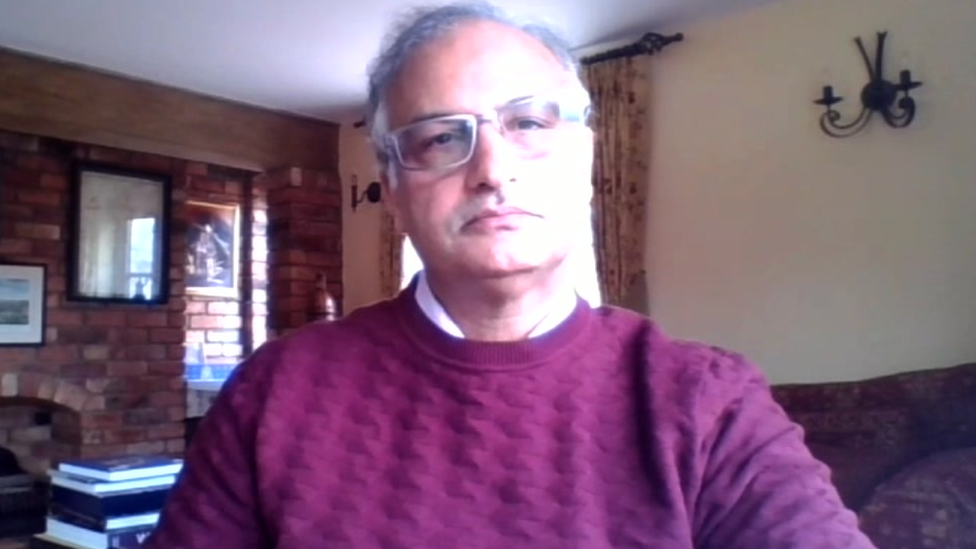
Prof Farooqi said the idea "clearly worked"
Prof Azhar Farooqi, chair of the CCG and a GP, said: "It's a big concern to us because often these communities are the most affected by Covid.
"We're finding the reasons why people are hesitating are very personal.
"It may be around worry about medicines they're already taking, or their pre-existing conditions, or it might be they're not satisfied with the outcome data, or they just want to wait and see what happens with the vaccine.
"The advantage of a one-to-one conversation is you can address these concerns very specifically and, by-and-large, most people in this country trust their GP.
"The information they get, they are often prepared to accept because they know their medical history as well."
Leicester currently has a seven-day coronavirus infection rate of 217.1 cases per 100,000 people - above the national average and the second highest in England.
In June, it became the first area in England to be made subject to a local lockdown.
Prof Farooqi said while the pilot scheme was getting results, more support would be needed to make it sustainable.
"Clearly it's very time-intensive. It can take up to 15 minutes with some patients who have got a lot of worries," he said.
"So we do need to find a way of giving GP practices the resources to do this on top of the work they're already doing but it clearly is something that does work."


VACCINE: When will I get the jab?
NEW VARIANTS: How worried should we be?
COVID IMMUNITY: Can you catch it twice?
LOOK-UP TOOL: How many cases in your area?



Follow BBC East Midlands on Facebook, external, Twitter, external, or Instagram, external. Send your story ideas to eastmidsnews@bbc.co.uk.
Related topics
- Published18 February 2021
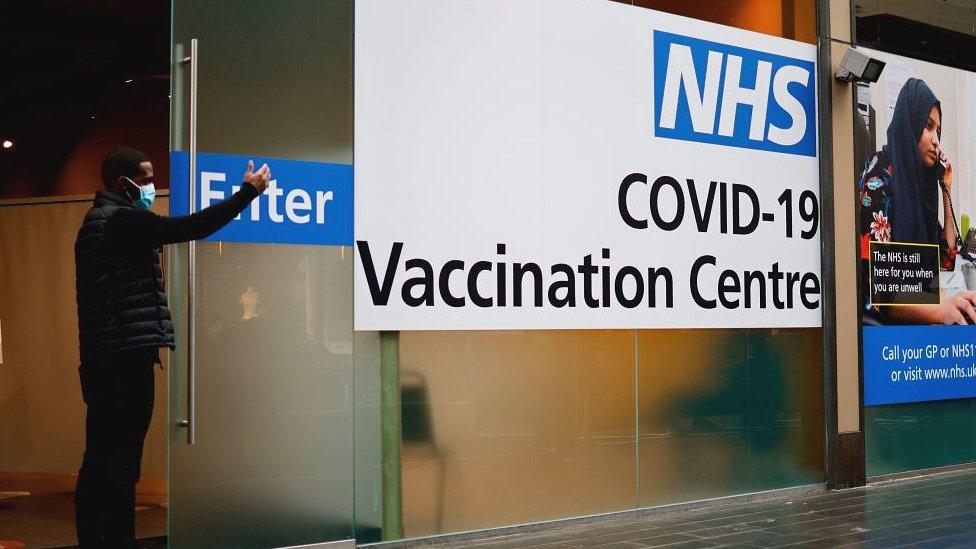
- Published15 February 2021
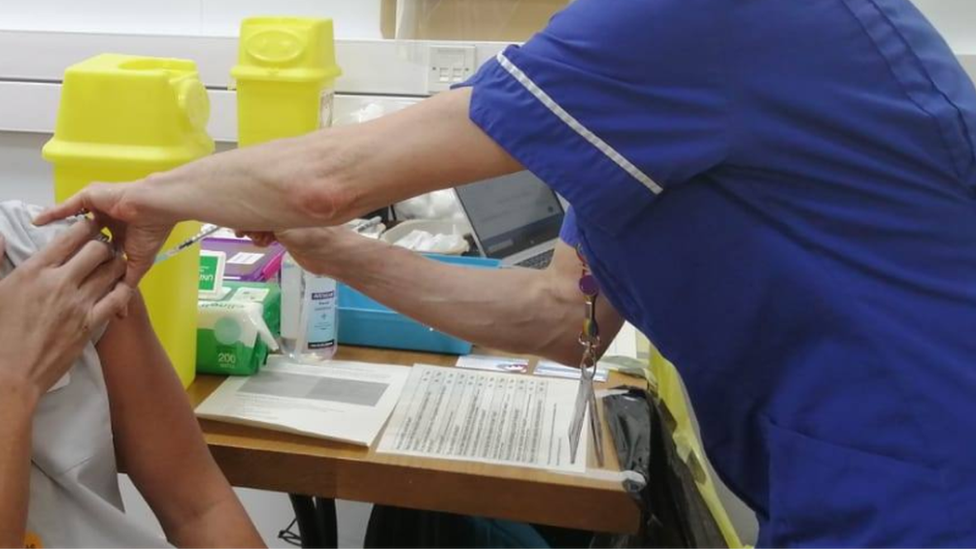
- Published6 February 2021
